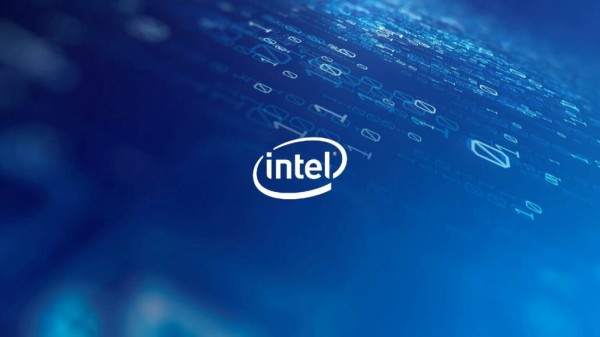Kako probiti Intelovu overclocking “zaštitu” na 915/925 pločama
Datum objave 13.07.2004 - Ozren Žagmešter
How to break 915/925 chipset overclocking “protection”?
There has been a lot of talk on the Internet about Intel’s alleged overclocking
protection on 915/925 chipsets. First impressions were that these chipsets had
clock limiter that depended on the PLL (Phase Lock Loop). Theory goes that the
PLL would refuse to lock a frequency that was higher then Intel’s threshold.
Based on our findings we think this is not true – we think it’s a simple matter
of North Bridge voltage.
When we received first sample 915/925 motherboards we noticed that their overclocking
was quite bad and we didn’t have any reason to doubt the “PLL theory”. Then
Albatron sent its PX915G Pro motherboard which had the unique option (for 915/925
boards) in the BIOS – the ability to raise the voltage of the North Bridge.
Our initial overclocking attempts with Albatron motherboard were average – top
FSB was 230MHz. Then we raised the NB voltage by 0.1V and managed to get the
system fully stable at 245MHz FSB. Increase of 0.2V led to stable FSB of 256MHz,
while the maximum increase (+0.3V) yielded a very nice FSB of 260MHz. At this
point we were sure that the alleged “protection” was no more than voltage issue
since Intel has done similar things before – just remember how i845D and i845E
chipsets “all of the sudden” started to support 800MHz Pentium 4 processors.
All of these tests were done with integrated graphics since at that time we
did not have any PCI Express video cards in our lab. But then yesterday NVIDIA
sent us their PCI-E 6800GT…
Very soon we realized that we could not reach speeds we managed with integrated
graphics – top FSB with PCI-E 6800GT card was only 225MHz! After several more
(unsuccessful) attempts it became obvious that PCI-E frequency lock did not
work. We also found out that setting the fixed PCI-E frequency in the BIOS to
100 (only available option besides Auto) would prevent the motherboard from
POST-ing at any FSB above the default 200. After this we decided to contact
Albatron and see what they have to say about the alleged overclocking protection
and BIOS problems.
Less than half an hour later we received a phone call from Taiwan (from Albatron, of course) in which
we were told that we were absolutely correct and that the whole overclocking
“protection” indeed is a question of NB voltage. We were also told that they
were preparing a new BIOS versions for their 915/925 boards “as we speak” which
would fix the PCI-E x16 problems. We were also told that we were “party breakers” (but in good spirit)
since Albatron has been working hard in previous weeks to break the FSB barrier
and they plan to release an official press release very soon about their success
(and in which they will disclose more information).
Remember ASUS and PAT? Seems Albatron did a similar thing with 915/925. We
are not surprised that someone did it since it is a very simple thing really.
Obviously Intel tested its NB chips to see what is the lowest possible voltage
that would enable them to work stable at 800MHz but at the same time prevent them from reaching high
FSB. The plan was obviously to unlock the full ability of the chipsets only
when new 1066MHz CPU models are launched. Why? Perhaps Intel plans to sell
“new” chipsets that are in fact no different then the old ones – model names
like 915PE and 915GE come to mind.
In any case, the mystery about overclocking protection is gone. There is one
thing that we do not understand – how could such a simple thing remain
hidden for so long? Motherboard makers have been toying with 915/925 for quite
some time and it is hard to believe that they didn’t find out the truth sooner!
Update (15.07.2004. 8:57am): We just received the new BIOS from Albatron that should fix the problem with floating PCI-E frequency. Off we go to test!
Update 2 (15.07.2004. 12:00pm): New BIOS does offer some overclocking improvements, but only with internal graphics. It is becoming more and more obvious that the real thing to crack now (ie once you remove NB from the picture by giving it enough “juice”) is the PCI-E bus which does not lock its frequency causing the discreet graphics card to hang. Wish we had an ATi PCI-E card in the lab to see if its more resistant to high frequency than the 6800 GT…
Update 3 (17.07.2004. 10:02am): Since we only got an ATi PCI-E card yesterday, Anandtech was faster in proving what we suspected when writing our Update 2 – that ATi cards are more resistant to out-of-spec PCI-E bus frequency. Anandtech also brought proof to another thing we were suspecting – that 915/925 chipsets were not capable of doing a real PCI-E lock. This basically proves our theory that there is no deliberate Intel overclocking protecion – Intel just didn’t design (or didn’t manage to design) 915/925 chipsets with a real PCI-E frequency lock… What a shame!
Note: In general we do not publish articles in English but today we just
could not resist
Forum
Objavljeno prije 1 minute
AutomobiliObjavljeno prije 1 minute
Lenovo ThinkPad kutakObjavljeno prije 2 minute
Filmovi - dojmovi, komentari i preporukeObjavljeno prije 7 minuta
Kućna struja, uzemljenje, osigurači, razvodiObjavljeno prije 17 minuta
Da li BIOS može smanjiti temperaturu procesoraNovosti
Ne možete nadograditi Windows 11 bez TPM-a 2.0? Microsoft objašnjava zašto je to važno
Kraj podrške za Windows 10 (listopad 2025.) sve je bliže, ali prema najnovijim podacima, više od 54% Windows uređaja još uvijek koristi Windows 10, a samo oko 42.69% nadogradilo je na Windows 11. Jedan od glavnih razloga za ovaj jaz je taj... Pročitaj više
Intel najavljuje više detalja o 18A procesu
Nedavno je Intel objavio više detalja o svom najnovijem procesnom proizvodnom procesu, Intel 18A, na simpoziju VLSI 2025., pokazujući svoj najnoviji iskorak u području poluvodiča i izravno se natječući s TSMC-ovim 2nm procesom. Intelov 18A... Pročitaj više
Apple ili Samsung, tko je najnoviji globalni lider?
Konkurencija među velikim brendovima mobilnih telefona postaje sve žešća, a tri poznate agencije za istraživanje tržišta Counterpoint, IDC i Canalys sukcesivno su objavile svoja globalna izvješća o prodaji mobilnih telefona za prvo tromjese... Pročitaj više
Google pred najvećim raskolom do sada nakon dva uzastopna antimonopolska poraza
Nakon pet godina borbe s antimonopolskim tužbama, čini se da obrambeni zidovi Googlea počinju popuštati. Tehnološki div trenutno se nalazi usred ozbiljnih pravnih bitki na dva najvažnija fronta – pretraživanju i online oglašavanju – s dvije... Pročitaj više
Instagam otključava značajku Edit Grid God (Uredi mrežu)
Instagram je društvena platforma bez koje mnogi mladi ljudi ne mogu svaki dan. Posebno je glavno bojno polje za online "ljepotice" i dijeljenje prekrasnih fotografija i stvaranje fantastične tipografije. Prije nekog vremena, IG je promijeni... Pročitaj više
Sve novosti




